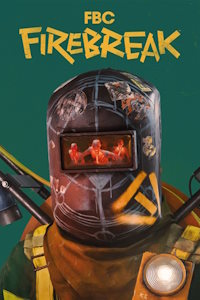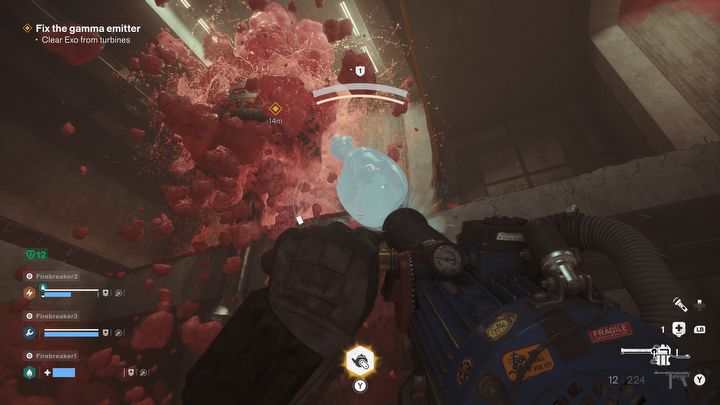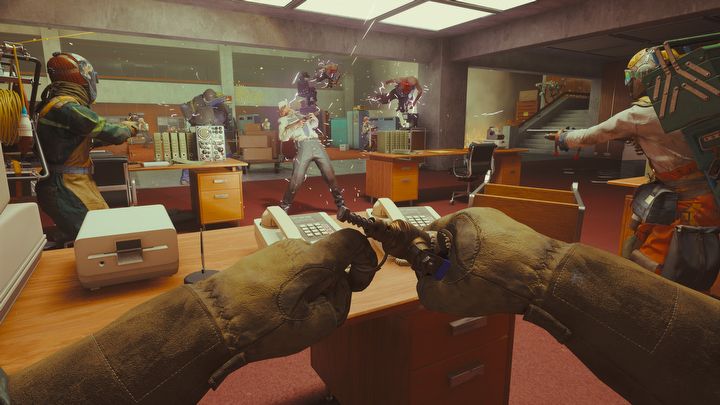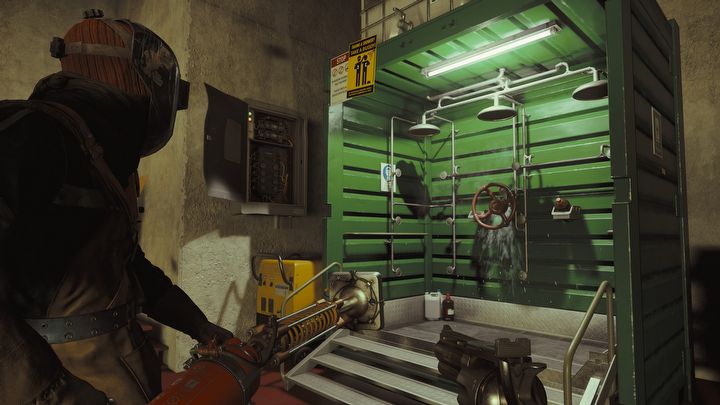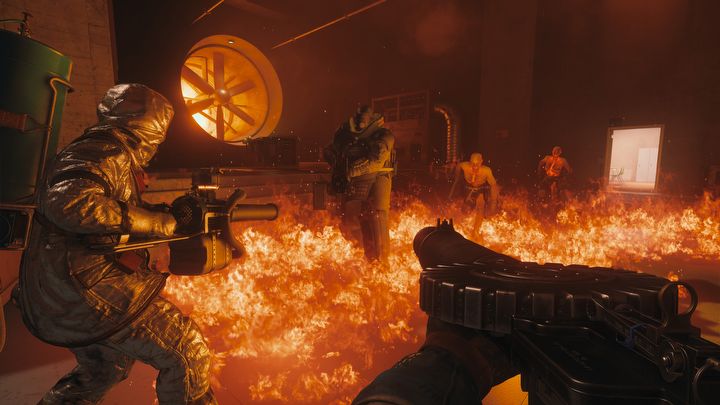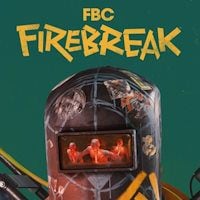FBC: Firebreak review: I want to love this game, but it’s not quite there yet
FBC: Firebreak is Remedy’s first attempt at a multiplayer shooter. While it’s got some great ideas and concepts, it didn’t quite come together perfectly in this debut showing.
The review is based on the PC version. It's also relevant to PS5, XSX version(s).
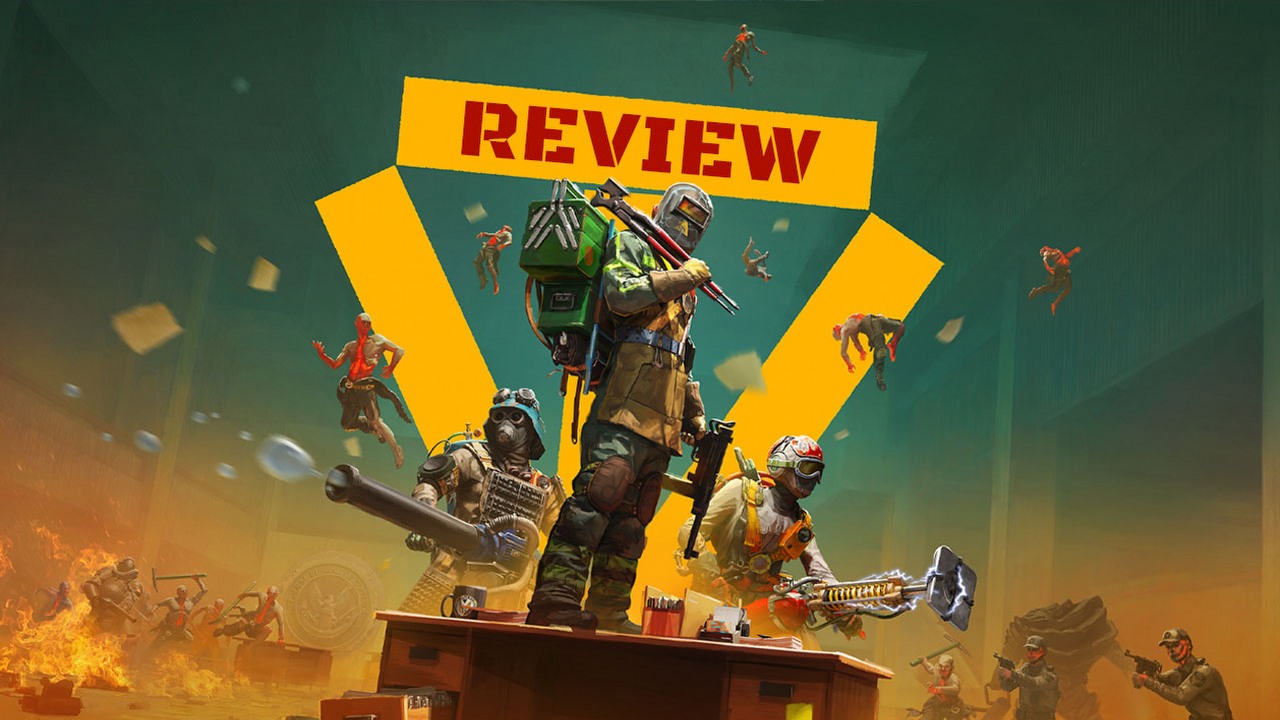
The most challenging genre to break through at the moment is the multiplayer shooter. As the News Section Editor at Gamepressure, I all too often cover stories of servers being shut down, studios closed, and all kinds of other happenings in this section of the video game market. Even titans of the industry, such as Sony, Warner Bros., and Ubisoft, have struggled to gain a foothold in what remains the most lucrative type of game. When Remedy Entertainment, the team behind 2023’s critical darling Alan Wake 2 and the beloved 2019 breakout hit, Control, announced they would be breaking off from their single-player action-adventure roots to try out a multiplayer shooter, I was skeptical, to say the least.
But the more I learned about FBC: Firebreak, the better it sounded. As someone who is not entrenched in one of the many live-service games, it felt like the multiplayer experience was built for me. This was not going to be a free-to-play game, which would force it to lean on microtransactions and/or battle passes to be profitable. It was planned to take place in the Federal Bureau of Control, the same fictional setting as Control, which was later expanded upon in Alan Wake 2, a location I would be happy to explore further. Then, finally, Remedy showed the kinds of missions we would be taking on, fighting off constantly multiplying sticky notes that covered your screen and eventually turned you into a humanoid pile of sticky notes. These are precisely the kind of weird, supernatural stories that make FBC: Firebreak stand out from the crowd. It falls right in with that Remedy charm that everyone has fallen in love with.
Everything is telling me I should love this game. However, for some reason, it’s just fine. FBC: Firebreak has so many great ideas, concepts, and strategies that I appreciate on paper, but when it comes to actually playing the game, it quickly feels tedious, repetitive, and barren. There is something great here, and with community feedback and future updates, I could see FBC: Firebreak becoming incredible, almost like a successor to Left 4 Dead 2. But in its current state, its quirky charm and clever ideas aren’t enough to make its lackluster gameplay stand out in this oversaturated arena.
Taking On Jobs
FBC: Firebreak is an up to three-player first-person shooter set in the so-called “Remedy-verse,” more specifically in the fictional Federal Bureau of Control’s headquarters known as the Oldest House. Given the Bureau’s role in taking on the unexplained phenomena in the world, it’s fairly common for something to spiral out of control. That’s where the Firebreak team comes in. You and up to two other friends volunteer to delve into the dangerous parts of the office to limit the destruction of various growing problems, categorized as “jobs” in-game.
The best-known job, as it was heavily featured in the trailers, is called 'Paper Chase'. This is the sticky note mission. Initially, your primary objective is to eliminate thousands of sticky notes before they multiply and cover the entire office. Through all of these missions, you’ll also be facing off against hordes of enemies called ‘hiss.’ These can vary from the melee-focused, zombie-like units to gun-toting ones, ones that fly around in office chairs, and heavily armored enemies with weak spots on their backs.
In all five available jobs, cooperative gameplay is highly encouraged. There are three kits to choose from, and no rules about each player having to pick a different role. The fix kit utilizes a wrench that can quickly repair devices. The splash kit features a water-powered gun that can put out fires and a device that can heal teammates. Finally, the jump kit can fire jolts of electricity that can power certain devices and temporarily stun enemies. All three kits are helpful for every job, but not necessary. You can always manually put out fires and jumpstart devices with your hands.
- Quirky, weird Remedy charm;
- clever concepts for jobs and unique ideas for player classes;
- maps can feel empty outside of objectives.
- Gameplay can get repetitive;
- objectives can feel tedious;
- maps can feel empty outside of objectives.
Multiplayer vs. Solo
Similarly, you don’t need to have friends to play either. The game is definitely designed to be best experienced in multiplayer, but especially with early access, it’s not always the easiest thing to pull off. So, I did spend some time playing on my own, and while not as enjoyable as a group of friendly people, it still had its moments. Once, I played on my own in a three-zone game that brought me down to my last possible respawn and took nearly sixty minutes to complete. It was one heck of an experience. It was way more intense when I didn’t have a teammate to pick me up when I was down or cover me when I stocked back up on ammo. That’s definitely not an experience I would want every time I play, but it was fun to try at least once.
One of my favorite experiences playing FBC: Firebreak was at Summer Game Fest, where I was able to sit around a booth with two other players in person. It’s rare for an online multiplayer game like this to have that kind of local co-op experience. In the hour we got to play together, we were able to take on two and a half jobs, and the second one ended unceremoniously, with the three of us reaching our respawn limit. This was at least partly due to me using my ultimate move, throwing out an electrical storm summoning garden gnome that ended up hurting my friends more than the enemies.
It’s experiences like that that make FBC: Firebreak so charming. It does so many more interesting things than most other games like it these days, even when things go wrong, it still manages to capture some of that weirdness that Remedy is known for. What other game would take a garden gnome that strikes enemies and teammates with lightning so seriously? Firebreak is a great first attempt, that unfortunately, does miss the mark.
VERDICT:
As someone who is not entrenched in one of the many live-service shooter games on the market right now, FBC: Firebreak felt like the multiplayer experience built for me. It has all the weird quirkiness that Remedy has been known for, with clever character classes that synergize well and the kinds of missions you would never see anywhere else. But somehow, when I jump into the game, it doesn’t feel right. The Oldest House is swarming with enemies, but somehow still feels somewhat empty. The missions feel repetitive and even tedious at times. Hopefully, Remedy can learn from this and turn this game into something great, or use the feedback for the next attempt at multiplayer.
Find all our reviews on Metacritic, Opencritic, and CriticDB.
A Clever Concept
FBC: Firebreak is a huge sidestep for Remedy. They are best known for their impressive story-driven single-player experiences. A multiplayer shooter, live-service or not, is a whole different beast. Looking back, it’s not surprising that FBC: Firebreak didn’t turn out perfect. But the team at Remedy did put forth some novel concepts for a co-op shooter. Each of the three kits is well-designed and balanced, making it useful in various ways, including synergizing with the other kits. The idea of sticky notes overwhelming an office sounds silly, and Remedy doesn’t shy away from that, but also manages to make it genuinely intimidating, too.
It is encouraging to see so many unique ideas in the studio’s first attempt at this kind of game. This gives me hope that they can continue to be creative as they either work on improving FBC: Firebreak over the next year or apply some of the lessons learned here to create another game in the future that delivers on the concept.
Over the last few years, the video game industry has not been forgiving of games that don’t find a massive player base right away. Even developers of a successful game like Marvel Rivals can still be laid off. But Remedy is not like many of these other studios. They are independent, and they are not afraid to take their time on something they care about. Alan Wake 2 was released thirteen years after the original, not because the developers forgot about it. When a team tries a new concept, they need the grace to make mistakes and learn from them. I believe Remedy is the kind of studio that can give this game the time it needs to try, and maybe even give the team behind FBC: Firebreak more chances to get it right in the future. Of course, that is mostly my optimistic hope talking; we will have to see what happens in the coming months.
FBC: Firebreak
FBC: Firebreak review: I want to love this game, but it’s not quite there yet
As someone who is not entrenched in one of the many live-service shooter games on the market right now, FBC: Firebreak felt like the multiplayer experience built for me. It has all the weird quirkiness that Remedy has been known for, with clever character classes that synergize well and the kinds of missions you would never see anywhere else. But somehow, when I jump into the game, it doesn’t feel right. The Oldest House is swarming with enemies, but somehow still feels somewhat empty. The missions feel repetitive and even tedious at times. Hopefully, Remedy can learn from this and turn this game into something great, or use the feedback for the next attempt at multiplayer.
